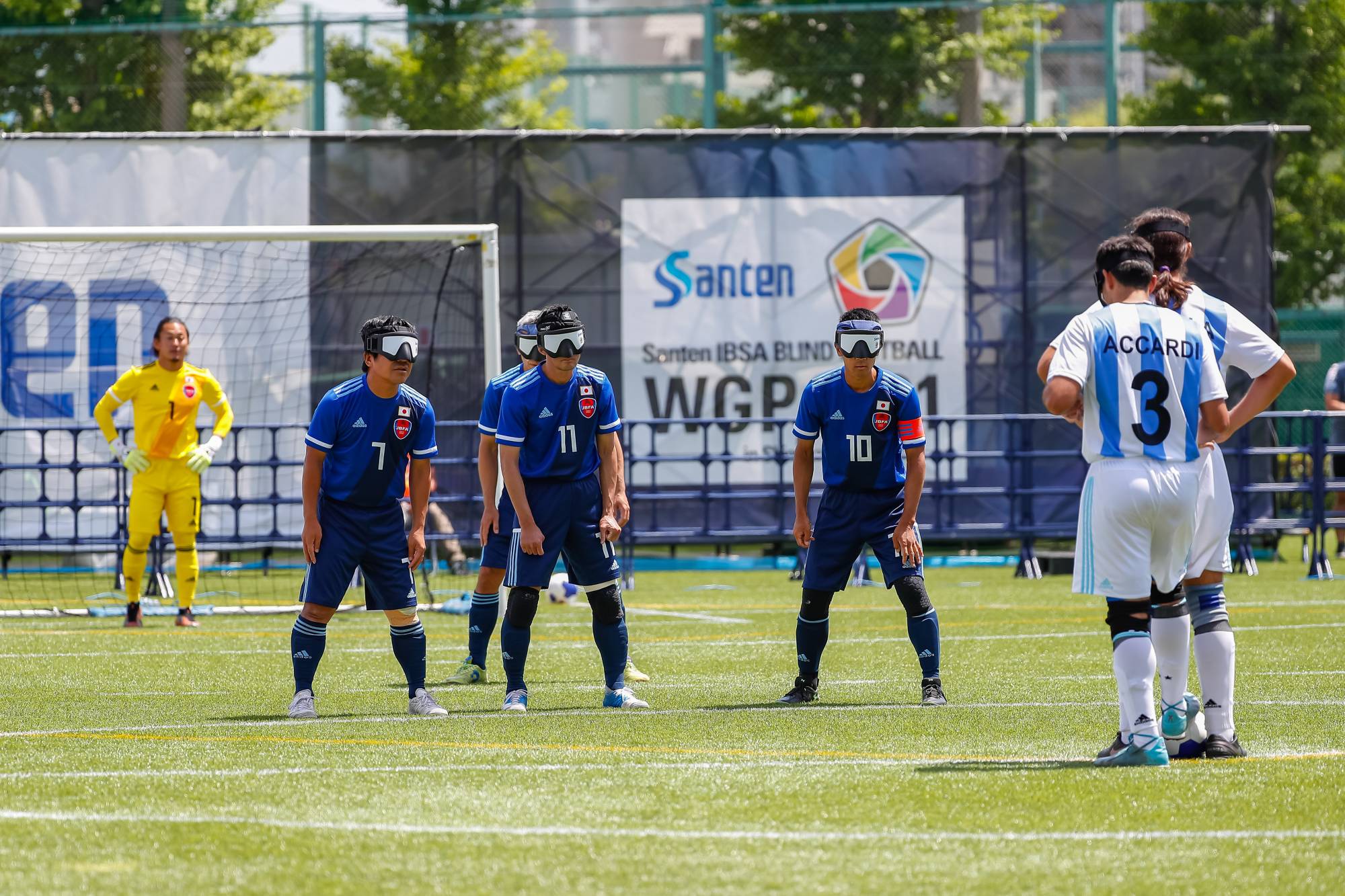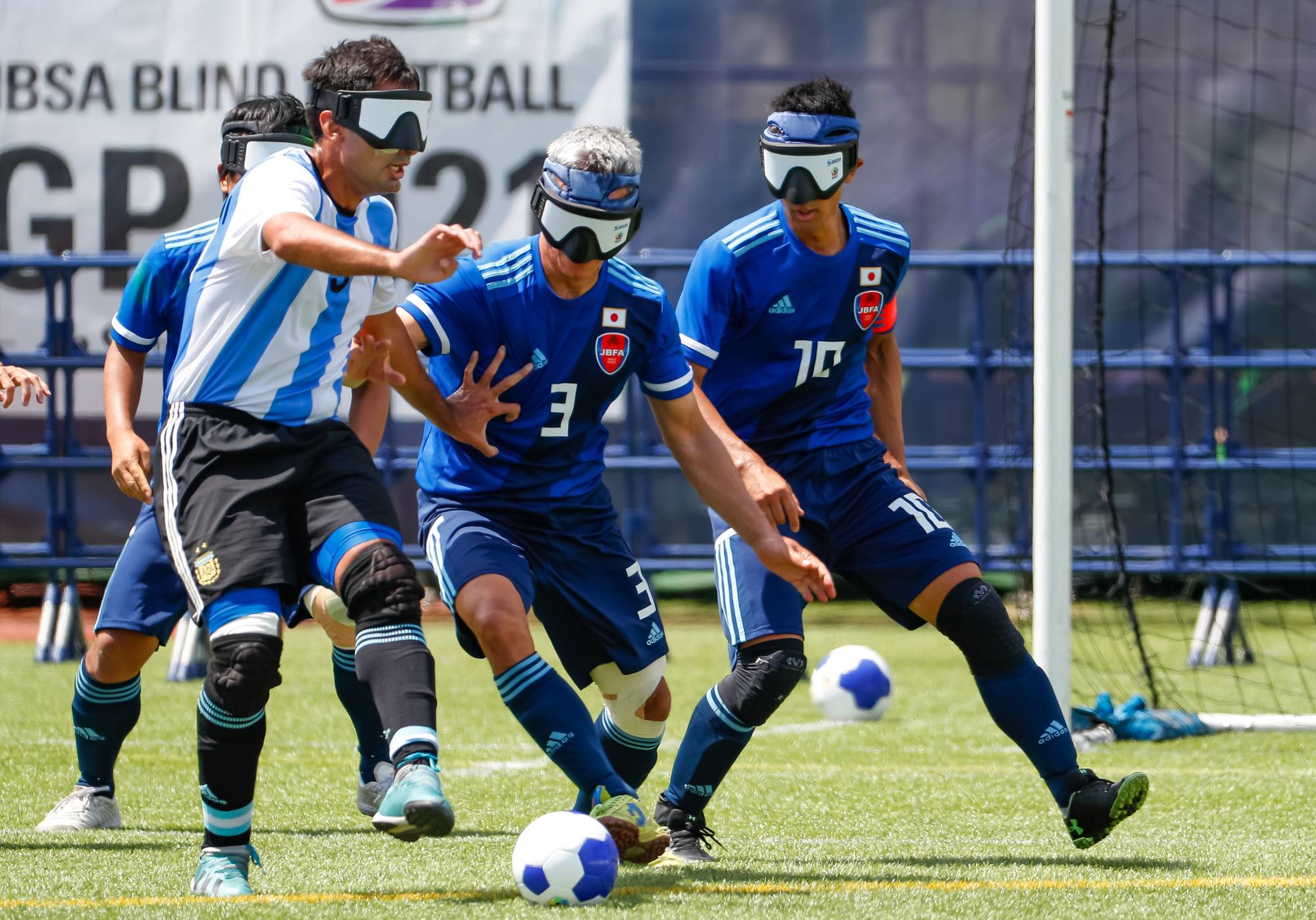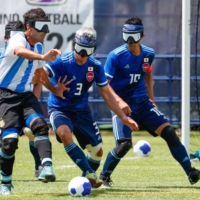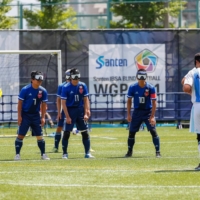The coronavirus pandemic has left sporting organizers scrambling over the last year to host competitions so that athletes have opportunities to compete and prepare for the Tokyo Olympics and Paralympics.
While Tokyo 2020 organizers have managed a limited number of para test events ahead of the games, the Japan Blind Football Association became one of the first para sport organizers to hold an international tournament last week in Tokyo.
The capital hosted the IBSA Blind Football World Grand Prix in a bubble environment, enacting strict protocols to ensure the safety for the participating teams amid the COVID-19 pandemic.
The tournament, inaugurated in 2018 to raise blind soccer’s visibility ahead of the Tokyo Paralympics, was canceled last year due to the pandemic. But organizers resumed it this year, limiting athletes and officials between their hotels and the competition venue throughout the event.
Tennozu Park in Tokyo's Shinagawa Ward hosted the May 30-June 5 event, which saw five nations including world No. 1 Argentina and host Japan compete.
Only a limited number of people were allowed into the bubble and the media was asked to watch the games via live YouTube streams and interview coaches and athletes via Zoom.
According to the Japan Blind Football Association, organizers designated liaisons to accompany each team throughout the tournament in order to ensure that anti-infection protocols were carried out in full.
Participating teams took polymerase chain reaction (PCR) tests twice before the event and took additional antigen tests every other day during the tournament.

"This was the first time that I experienced something like this," Japan captain Ryo Kawamura said of the bubble. "We were not supposed to leave our hotel rooms, but we dealt with that and were able to communicate (within our team) when we saw each other during our meal times and physical treatments.
“I thought that I would be stressed, but at the same time I'd known that we would be in such an environment and each player had accepted that and has been able to adapt.”
Spain's Sergio Rodriguez said he felt a sense of security in the bubble.
"We felt really safe out there," he said. "The organizers did a really good job and we felt safe inside the bubble."
The International Blind Sports Federation (IBSA) said the WGP was its first sanctioned international event in over a year, offering participating teams a rare and significant chance to take to the field and test their skills against world-class talent.
“I understand we have to endure a variety of restrictions and follow those rules,” Japan striker Tomonari Kuroda said. “Our team got into the tournament trying to be as ready as we could physically and perform to the best we could at the moment.”
Blind soccer players need to rely on their sense of touch both on and off the pitch.
Kuroda said that the players were all thankful that organizers made sure to frequently sanitize surfaces the players were likely to touch.
“We’ve been able to compete and focus on our games,” Kuroda said. “We are happy to just be able to be here.”
The tournament was a great occasion for Japan to build its confidence ahead of the Paralympics. The host nation advanced to the championship match for the first time in the history of the event and captured silver, while Argentina completed a tournament three-peat with Saturday’s 2-0 victory.
Japan head coach Satoshi Takada said that his team was able to gain valuable experience through the five contests it played with the Paralympics in mind.
Takada added that the temperature did not go up too high during the event, but that his team would have an even greater advantage in the Tokyo heat against teams from South America and Europe during the Aug. 29-Sept. 4 blind soccer tournament at the games.
“We would like to capitalize on our home advantage and mobility,” he said. “I think our chances to get a medal are 50%.”





